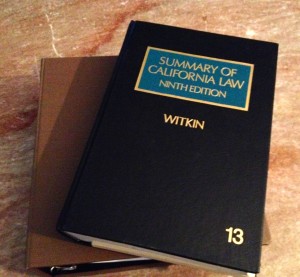Does a Landlord Have Liability to People Other Than Tenants?
THE OLD LAW: THE INJURED PERSON’S STATUS DETERMINED THE LANDLORD’S LIABILITY
It used to be the case that a landlord’s duty–or lack thereof–hinged on the status of the injured party (as well as the nature of the injury). The Landlord’s duty to “Invitees,” meaning people the Landlord “invited” onto his or her property for business or personal reasons, was higher than that owed to “licensees” or “trespassers.” Different rules applied to different categories of people, and the landlord’s duty varied on the basis of a person’s status.
Generally, the landlord owed no duty at all to trespassers, and very little (if any) to licensees. A landlord’s primary liability was only to people (s)he invited onto the property.
However, the law has changed, and the landlord’s duty is expanded to include more people than merely those the landlord invites, or is deemed to have invited, onto the premises.

THE MODERN LAW: LANDLORDS HAVE A DUTY OF “ORDINARY CARE”
The law now recognizes that landlords have an obligation to maintain their property in a reasonably safe condition, and that public policy weighs in favor of judging a landlord’s duty with a focus on property maintenance rather than the identity of the injured party.
As a general rule, landlords must manage and maintain property with “ordinary care.” The existence of a duty sufficient to support a finding of negligence is evaluated on a case by case basis. To evaluate whether or not such a duty existed, courts look at factors originally established in the 1968 case of Rowland v. Christian (69 C2d 108, 119, 70 CR 97, 104).
The injured party’s status as an invitee, licensee, or trespasser is relevant to the analysis, but mainly in terms of evaluating the foreseeability of harm. The landlord’s duty to render property reasonably safe for expected entrants (invitees and licensees) creates a situation where injured trespassers may also have a claim, particularly when the type of injury was equally (or almost equally) likely to be suffered by any person regardless of status.
In the next post, we’ll look at those factors and how they influence a court’s decision whether or not a landlord has liability to an injured person. For now, the short answer to the question posed in the title is “possibly.” A firm decision can be made only after evaluation of numerous factors and the facts of the case and injury in question.
If you suffered injury on someone else’s property, consult an attorney without delay. Waiting could prejudice your legal rights and make your case more difficult to evaluate, which can impact even a successful recovery.














